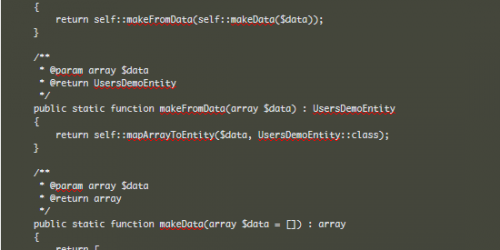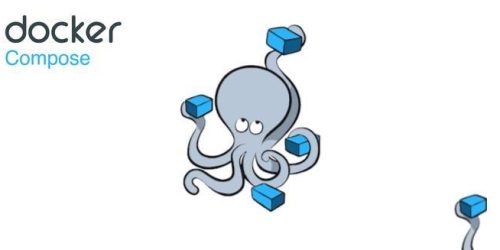Introducing goseeder – the go database seeder
Hi everyone. It has been a long time since my last post. I have so many ideas and topics that I want to share but could not due to time limits.
Anyway, I am back! and this time introducing one go library that I created, goseeder https://github.com/kristijorgji/goseeder
Contents
Motivation
Golang is a great language and getting better as community and frameworks, but there are still a lot of pieces missing for developing fast, accurate way and avoiding repetitions.
I was searching for a go database seeder similar to the one that Laravel/Lumen provides and could not find one.
Knowing that this is such an important key element of any big project for testing and seeding projects with dummy data I decided to create one myself and share.
Features
For now the library supports only MySql as a database driver for its utility functions like (s Seeder) FromJson but it is db agnostic for your custom seeders you can use any database that is supported by sql.DB
goseeder in your go database seed files.
- Allows specifying seeds for different environments such as test,common (all envs) and more (flexible you can define them)
- Provides out of the box functions like
(s Seeder) FromJsonto seed the table from json data and more data formats and drivers coming soon - Execute database seeder by specifying their names
go run main.go --gseed --gsnames=categoriesSeeder,productsSeeder - Execute database seeders by specifying the environment
go run main.go --gseed --gsenv=test
Installation
|
1 |
go get github.com/kristijorgji/goseeder |
Usage
Please check examples/simpleshop for a full working separate go project that uses the seeder
Below I will explain once more all the steps needed to have goseeder up and running for your project.
1. Change Your Main Function
In order to give your executable seeding abilities and support for its command line arguments, the first thing we have to do is to wrap our main function with the provided goseeder.WithSeeder
|
1 |
func WithSeeder(conProvider func() *sql.DB, clientMain func()) |
The function requires as argument
- one function that returns a db connection necessary to seed
- your original main function, which will get executed if no seed is requested
One such main file can look like below:
|
1 2 3 4 5 6 7 8 9 10 11 12 13 14 15 16 17 18 19 20 21 22 23 24 25 26 27 28 29 30 31 32 33 34 35 36 37 38 39 40 41 42 43 44 45 46 47 48 49 50 51 52 53 |
// main.go package main import ( "database/sql" "fmt" _ "github.com/go-sql-driver/mysql" "github.com/joho/godotenv" "github.com/kristijorgji/goseeder" "log" "net/url" "os" _ "simpleshop/db/seeds" ) func main() { err := godotenv.Load() if err != nil { log.Panic("Error loading .env file") } goseeder.WithSeeder(connectToDbOrDie, func() { myMain() }) } func myMain() { fmt.Println("Here you will execute whatever you were doing before using github.com/kristijorgji/goseeder like start your webserver etc") } func connectToDbOrDie() *sql.DB { dbDriver := os.Getenv("DB_DRIVER") dbHost := os.Getenv("DB_HOST") dbPort := os.Getenv("DB_PORT") dbName := os.Getenv("DB_DATABASE") dbUser := os.Getenv("DB_USERNAME") dbPassword := os.Getenv("DB_PASSWORD") dbSource := fmt.Sprintf( "%s:%s@tcp(%s:%s)/%s?parseTime=true", dbUser, url.QueryEscape(dbPassword), dbHost, dbPort, dbName, ) con, err := sql.Open(dbDriver, dbSource) if err != nil { log.Fatalf("Error opening DB: %v", err) } return con } |
2. Registering Your Seeds
Great! After step 1 our executable is able to run in seed mode or default mode.
Now we want to know how to register our custom seeds.
If you look at the imports in main file from step one, we might notice that we import _ "simpleshop/db/seeds" even though we do not use them directly.
This is mandatory because our seeds will get registered during package initialisation as we will see later.
The recommended project folder structure to work properly with goseeder is to have the following path for the seeders db/seeds and the package name to be seeds
Inside the folder you can add your seeders, for example lets seed some data into the categories table from one json file located at db/seeds/data/categories.json.
To do that we create our categories.go file at db/seeds folder:
|
1 2 3 4 5 6 7 8 9 |
// db/seeds/categories.go package seeds import ( "github.com/kristijorgji/goseeder" ) func categoriesSeeder(s goseeder.Seeder) { s.FromJson("categories") |
To use this seed, the last step is to register it.
Seeds can be registered as:
commonseeds that run for all environments- for a specific environment like
test,yourcustomenv(more in step 3)
We are going to create below a seed that runs for all environments, so we will not specify any env while registering it.
To do that we create in the db/seeds folder the file common.go that will register seeds that get always executed regardless of the environment:
|
1 2 3 4 5 6 7 8 |
// db/seeds/common.go package seeds import "github.com/kristijorgji/goseeder" func init() { goseeder.Register(categoriesSeeder) } |
We used goseeder.Register to register our seed function to run for all environments.
That is all for the basic usage of goseeder!!!
Our function in categories.go file is now registered and ready to be used.
Now you can run
|
1 2 |
go run main.go --gseed |
and it will run all your seeds against the provided db connection.
The framework will look for categories.json file in the path db/seeds/data, and insert all the entries there in a table named categories (inferred from the file name)
3. Run Seeds Only For Specific Env
Many times we want to have seeds only for test environment, test purpose and want to avoid having thousand of randomly generated rows inserted into production database by mistake!
Or we just want granular control, to have separate data to populate our app/web in different way for staging prod yourcustomenv and so on.
goseeder is designed to take care of this by using one of the following methods:
goseeder.RegisterForTest(seeder func(s Seeder)– registers the specified seed for the env namedtestgoseeder.RegisterForEnv(env string, seeder func(s Seeder))– will register your seeder to be executed only for the custom specified env
Let’s add to our previous categories.go seeder one seed function specific only for test env! The file now will look like:
|
1 2 3 4 5 6 7 8 9 10 11 12 13 14 15 16 17 18 19 20 21 |
package seeds import ( "fmt" "github.com/kristijorgji/goseeder" "simpleshop/util" ) func categoriesSeeder(s goseeder.Seeder) { s.FromJson("categories") } func testCategoriesSeeder(s goseeder.Seeder) { for i := 0; i < 100; i++ { stmt, _ := s.DB.Prepare(`INSERT INTO categories(id, name) VALUES (?,?)`) _, err := stmt.Exec(util.RandomInt(1, int64(^uint16(0))), []byte(fmt.Sprintf(`{"en": "%s"}`, util.RandomString(7)))) if err != nil { panic(err) } } } |
Finally, lets create our registrator file for all test seeds same way as we did with common.go, we will create test.go now with content as below:
|
1 2 3 4 5 6 7 8 |
// db/seeds/test.go package seeds import "github.com/kristijorgji/goseeder" func init() { goseeder.RegisterForTest(testCategoriesSeeder) } |
That is all!
Now if you run your app without specifying test env, only the common env seeders will run and you cannot mess by mistake production or other environments!
To run the test seeder above you have to run:
|
1 |
go run main.go --gseed --gsenv=test |
4. Run Seeds By Name
When we register a seed like shown in step 2, the seed name is the same as the function name, so our seed is called categoriesSeeder because that is the name of the function we register below
|
1 2 3 |
func init() { goseeder.Register(categoriesSeeder) } |
This is important because we are totally flexible and can do cool things like execute only the specific seed functions that we want!
Let’s assume that we have 100 seed functions, and want to execute only one of them which is named categoriesSeeder (that we registered above) and ignore all the other seeds.
Easy as this, just run:
|
1 |
go run main.go --gseeder --gsnames=categoriesSeeder |
If you want to execute multiple seeds by specifying their names, just use comma separated value like --gsnames=categoriesSeeder,someOtherSeeder
Summary Of Cli Args
You can always run
|
1 |
run go run main.go --help |
to see all the available arguments and their descriptions.
For the current version the result is:
|
1 2 3 4 5 6 7 8 9 |
INR00009:simpleshop kristi.jorgji$ go run main.go --help Usage of /var/folders/rd/2bkszcpx6xgcddpn7f3bhczn1m9fb7/T/go-build810543742/b001/exe/main: -gseed goseeder - if set will seed -gsenv string goseeder - env for which seeds to execute -gsnames string goseeder - comma separated seeder names to run specific ones INR00009:simpleshop kristi.jorgji$ |


